Дэлхий дахинд
China reaffirms commitment to reform, opening up at “two sessions”

BEIJING, March 9 (Xinhua) — Those keen to understand the trajectory and focus of the world’s second-largest economy will find a recurring theme at China’s “two sessions” this year — reform and opening up.
At the ongoing annual sessions of China’s national legislature and top political advisory body — the first since last July’s reform-themed third plenary session of the 20th Central Committee of the Communist Party of China — reform was once again highlighted across a broad spectrum of areas, ranging from rural development and improving fiscal, tax and financial systems, to education and health care.
The “two sessions” agenda has also underscored China’s commitment to expanding high-standard opening up and stabilizing foreign trade and foreign investment.
“Regardless of changes in the external environment, we should remain steadfast in our commitment to opening up,” said a government work report submitted to China’s national legislature for deliberation on Wednesday. “We should steadily expand institutional opening up and take the initiative to open wider and advance unilateral opening up in a well-ordered way, to promote reform and development through greater openness.”
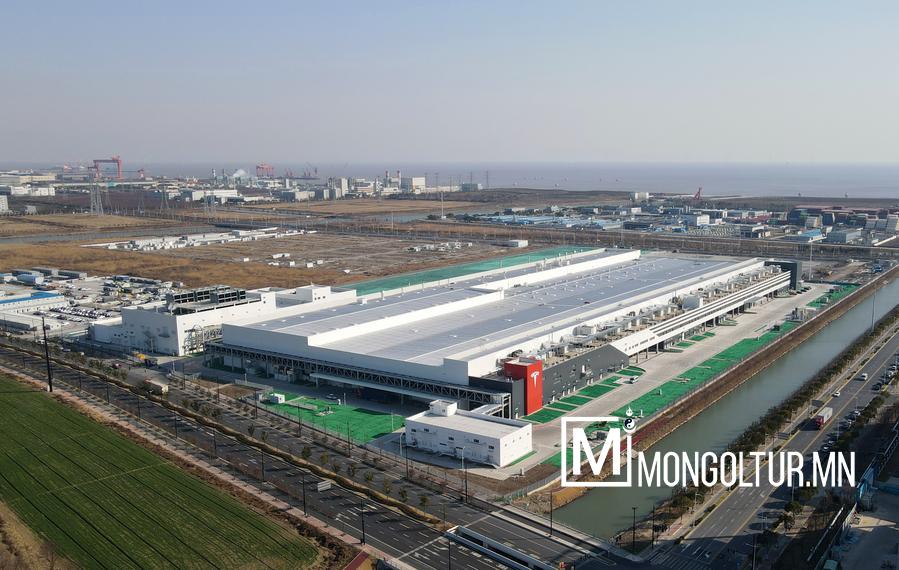
(250309) — BEIJING, March 9, 2025 (Xinhua) — An aerial drone photo shows U.S. carmaker Tesla’s Megafactory in Shanghai, east China, Feb. 8, 2025. (Xinhua/Fang Zhe)

An aerial drone photo shows U.S. carmaker Tesla’s Megafactory in Shanghai, east China, Feb. 8, 2025. (Xinhua/Fang Zhe)
WHY IT MATTERS
China’s commitment to reform and opening up is reflected in the latest development on the country’s southernmost island province of Hainan, where the free trade port will begin independent customs operations in 2025.
On the sidelines of the “two sessions,” Cai Qiang, a national legislator and deputy director of the Office of the Hainan Free Trade Port Working Committee, said the tax system tailored to the Hainan Free Trade Port is taking shape, and efforts will be made to further upgrade its preferential tax policies.
China pledged to accelerate the implementation of core policies for the free trade port this year, and improve opening up and development policies for economic development zones, according to the government work report.
From deepening reform in its special economic zones already established to further easing market access restrictions for investment, China has consistently championed reform and opening up, boosting its high-quality development and sharing opportunities with the rest of the world.
Since 1978, reform and opening up has transformed a once-impoverished country into a market-oriented economic powerhouse, with China’s per-capita GDP surging from 156.4 U.S. dollars in 1978 to 12,614.1 dollars in 2023.
China’s GDP grew by 5 percent year on year in 2024, ranking among the world’s fastest-growing major economies and continuing to contribute about 30 percent to global economic growth.
Yet challenges remain. Domestically, the country faces headwinds, including insufficient demand to reinforce its economic recovery while fostering innovation-driven development. Globally, businesses must navigate escalating trade tensions, rising protectionism, and the latest wave of technological revolution reshaping industries, production models and lifestyles.
The Chinese leadership has made it clear that challenges arising from reform and opening up can only be solved by pressing ahead with reform and opening up, demonstrating a firm determination to address the risks and obstacles on the path ahead.
China targets an economic growth rate of around 5 percent this year, as policymakers are determined to secure a steady recovery through decisive and effective measures.
“By deepening reform, opening up and innovation across the board and enhancing the intensity of our macro policies, we will develop new drivers of growth and have the ability and conditions to achieve this target,” according to a report from the State Council on the implementation of the 2024 plan for national economic and social development and on the 2025 draft plan, which was submitted to lawmakers for review on Wednesday.
Liao Wenbin, a national legislator and mayor of Yibin City in southwest China’s Sichuan Province, sees 2025 as a crucial year for further, more comprehensive deepening of reform and opening up, saying that reforms are set to open up a broader space for the country’s high-quality development.
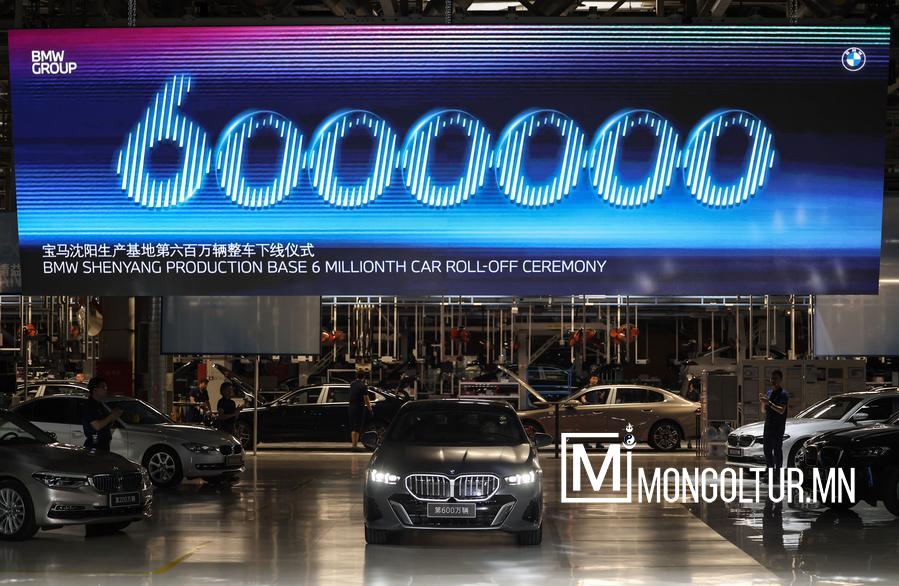
(250309) — BEIJING, March 9, 2025 (Xinhua) — This photo taken on May 8, 2024 shows a roll-off ceremony of the 6 millionth car produced by BMW Brilliance Automotive (BBA) in Shenyang, northeast China’s Liaoning Province. (Xinhua/Pan Yulong)
WHAT IT MEANS TO THE WORLD
Though the “two sessions” focus mainly on China’s domestic development policies, China’s high-quality development is increasingly creating shared opportunities for the world and its open market is becoming truly global.
In a world filled with uncertainties, the ongoing “two sessions” have sent an unequivocal message: China is committed to expanding high-standard opening up and continues to share development opportunities with the world.
According to this year’s government work report, China will broaden international cooperation by further opening up to promote greater mutual reinforcement and higher-standard positive interplay between domestic and international economic flows.
“Opening up has been a pivotal driver of China’s development, and the Chinese government remains steadfast in its commitment to advancing openness, pushing to open its doors even wider,” Shen Danyang, director of the Research Office of the State Council, told a press briefing on Wednesday when elaborating on the report.
This year’s report outlines several new measures for opening up, highlighting efforts to foster a first-rate business environment that is market-oriented, law-based and internationalized, Shen said.
Embracing the country’s emerging opportunities, foreign giants like Tesla and BMW have expanded their presence in China, leveraging its vast industrial ecosystems and consumer market to drive breakthroughs in electric vehicles, renewable energy and advanced materials.
A recent report from the American Chamber of Commerce in South China shows that approximately 58 percent of foreign companies surveyed consider China to be one of their top three investment priorities, and 76 percent plan to reinvest in the country in 2025.
Jiang Ying, Deloitte China chair and a national political advisor, emphasized that China’s ongoing commitment to high-standard opening up will draw greater international capital and technology to the Chinese market while simultaneously boosting the global reach of Chinese products and services.

Дэлхий дахинд
Ромын пап Францисыг оршуулах ёслол бямба гарагт болно
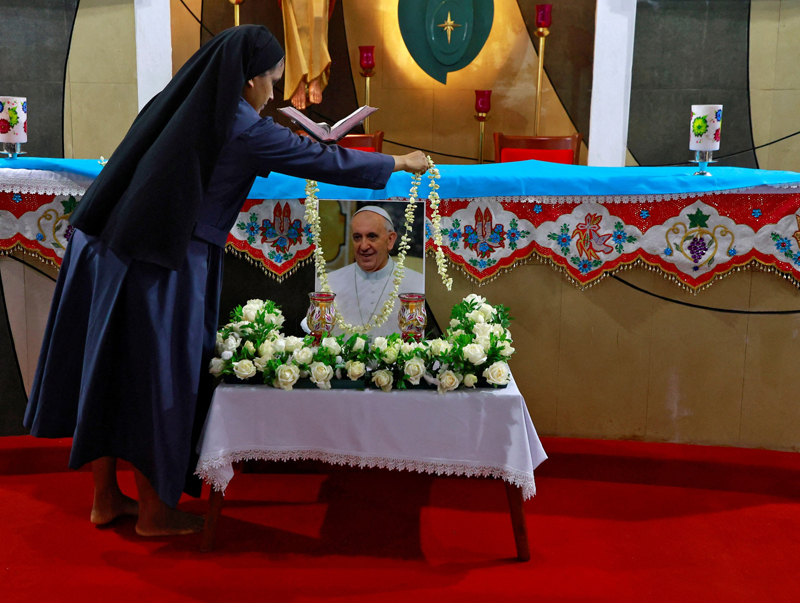
Ромын католик сүм хийдийн кардиналууд өчигдөр хуралдаж, пап Францисын оршуулах ёслолыг энэ бямба гарагт Гэгээн Петрийн талбайд гадаа үйлдэхээр тогтжээ. Харин ард иргэд, сүсэгтнүүдийг Ромын Папд хүндэтгэлээ илэрхийлэх боломжийг олгох үүднээс лхагва гарагт шарилыг нь Гэгээн Петрийн сүмд байрлуулж юм байна.
88 настай Пап лам Францис тархинд нь цус харвасны улмаас зүрхний дутагдалд орж нас нөгчсөн болохыг Ватиканы албаныхан үүний өмнө мэдээлсэн. Он гарснаас хойш хоёр уушгиндаа хатгалгаа туссаны улмаас эмчлүүлж эмнэлгээс гараад удаагүй байсан Ромын пап хамгийн сүүлд өнгөрсөн амралтын өдөр Улаан өндөгний баярыг тохиолдуулж Гэгээн Петрийн талбайд сүсэгтэн олонтой мэндчилж байсан юм. Францис ламтан мөн тогтсон заншлаас гажиж, Гэгээн Петрийн сүмд бус, Гэгээн Мариагийн сүмд өөрийг нь оршуулахыг гэрээсэлжээ. Өмнөх бүх Ромын папуудаас анх удаа Европын бус орны гаралтай Францис ламтны дурсгалыг хүндэтгэж төрөлх Аргентин улсад нь болон хөрш Бразил улсад 7 хоногийн гашуудал зарласан байна.Мөн дэлхийн католик шашинтнуудын тэргүүнийг оршуулах ёслолд оролцож, Пап Францистай салах ёс гүйцэтгэх бодолтой байгаагаа дэлхийн олон орны удирдагчид илэрхийлж байгаа юм байна.
АНУ-ын Ерөнхийлөгч Д.Трамп тухайлбал гэргийн хамтаар Ром хотноо энэ ёслолд оролцохоо мэдэгдсэнээр албандаа орсноосоо хойш анх удаа хилийн дээс алхах гэж байгааг хэвлэлүүд дурьдаж байна. Францын Ерөнхийлөгч Э.Макрон, Бразилийн ерөнхийлөгч Лула да Сильва, Пап ламтны төрөлх Аргентин улсын ерөнхийлөгч Хавьер Милей нар мөн оршуулгад оролцохоо мэдэгджээ. Украины ерөнхийлөгч Зеленский очихоор төлөвлөж байгаа талаар дотоодын хэвлэлүүд нь мэдээлжээ.
Дэлхийн 1,4 тэрбум католик шашинтнуудын тэргүүн, дараагийн Пап ламыг сонгох сонгуулийн тухайд, түүнийг таалал төгссөнөөс 15-20 хоногийн дараа эхэлдэг жаягтай. Энэ үүднээсээ тавдугаар сарын 6-наас хойш болох юм байна. Маш чанд хатуу дэг ёсны дагуу, нууц байдалд явагддаг энэ сонгуульд дэлхийн өнцөг булан бүрийн 135 кардинал оролцох эрхтэй байна.
Дэлхий дахинд
The U.S. tariff tantrum: A self-defeating trade war
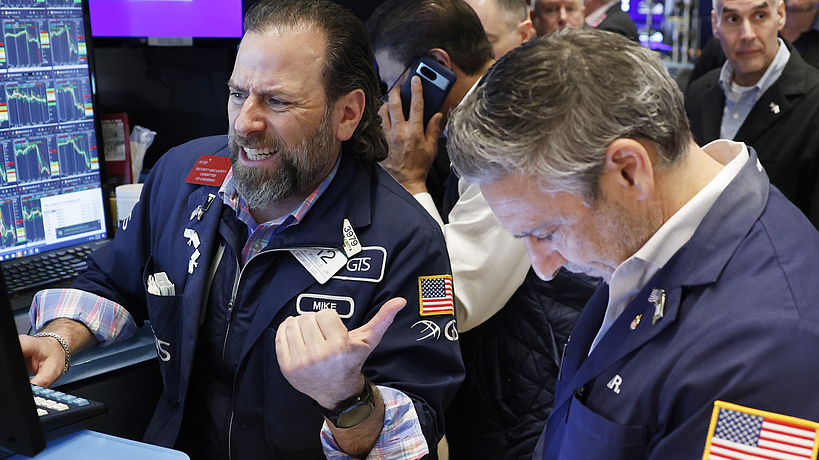
Editor’s note: Xin Ping is a commentator on international affairs, writing regularly for Xinhua News Agency, CGTN, Global Times, China Daily, etc. The article reflects the author’s views and not necessarily those of CGTN.
Washington’s latest tariff blitzkrieg – slapping “universal” levies on over 180 nations and regions – is setting things on fire at home.
The moment the executive order was signed, U.S. markets went into freefall: the Dow plunged nearly 4 percent, Apple and Nike stocks nosedived, and $6.4 trillion vanished from Wall Street in two days.
This isn’t economic policy. It’s economic arson.
The art of self-sabotage
Will tariffs bring manufacturing home? Despite years of arm-twisting, American tech giant Apple still works with 94.5 percent of its suppliers being overseas.
Apple isn’t an outlier. The semiconductor industry is facing obstacles in reshoring back to the U.S. as well. Intel has paused its Arizona factory. TSMC is delaying U.S. production. The problems hindering “made in America” are systemic and may only be addressed through a broad and profound economic restructuring. Tariffs won’t magically resurrect dead industries; they only inflate prices for already-struggling consumers.
The U.S. tariff spree, unleashed in the name of “America First,” is in fact a masterclass in shooting oneself in the foot. U.S. farmers will be hard hit. In the aftermath of the 2018 China tariff, while U.S. soybean exports eventually rebounded, the farming community suffered irreparable damages: Midwest farm bankruptcies spiked 30 percent, wiping out generations of family farms. Today’s “Tariff 2.0” risks repeating history – but with higher stakes.
China’s counterpunch
Beijing has been defending itself with precise actions, hitting back with matching levies. But its market remains open to others. Germany’s automakers, for instance, now sell more cars in China than at home. ASEAN’s durians and lobsters enter Chinese markets tariff-free under RCEP – a stark contrast to America’s “walled garden” approach.
As China’s commerce ministry stated: “Bullying tactics won’t work. We defend rules, not whims.” Similar tactics have failed before. When the U.S. tried weaponizing small-parcel exemptions to target Chinese goods, U.S. retailers revolted, as 60 percent of affected imports are everyday essentials for low-income households.
Allies: from partners to prey
American allies are not spared either, and their response has also been strong. The EU is poised to approve retaliatory measures. France is warning against “suicidal trade wars.” German industries are lobbying Brussels to hit back harder. Japan is calling the moves “deeply regrettable.”
In Southeast Asia, the irony is thicker than durian pulp as countries like Vietnam face 46 percent tariffs but remain trapped supplying components to U.S. tech giants. An economist in Hanoi reveals the reality: “Trump wants us to be his factory, but not his competitor. That math doesn’t add up.”
The U.S. tariff crusade isn’t just failing – it’s uniting the Global South against Washington. The U.S. only accounts for around 15 percent of global trade. The remaining 85 percent is made up by the rest of the world – including China – and it will not stand idly by and watch the international trade system, the very thing that fostered global prosperity for decades, destroyed by self-serving political motivations.
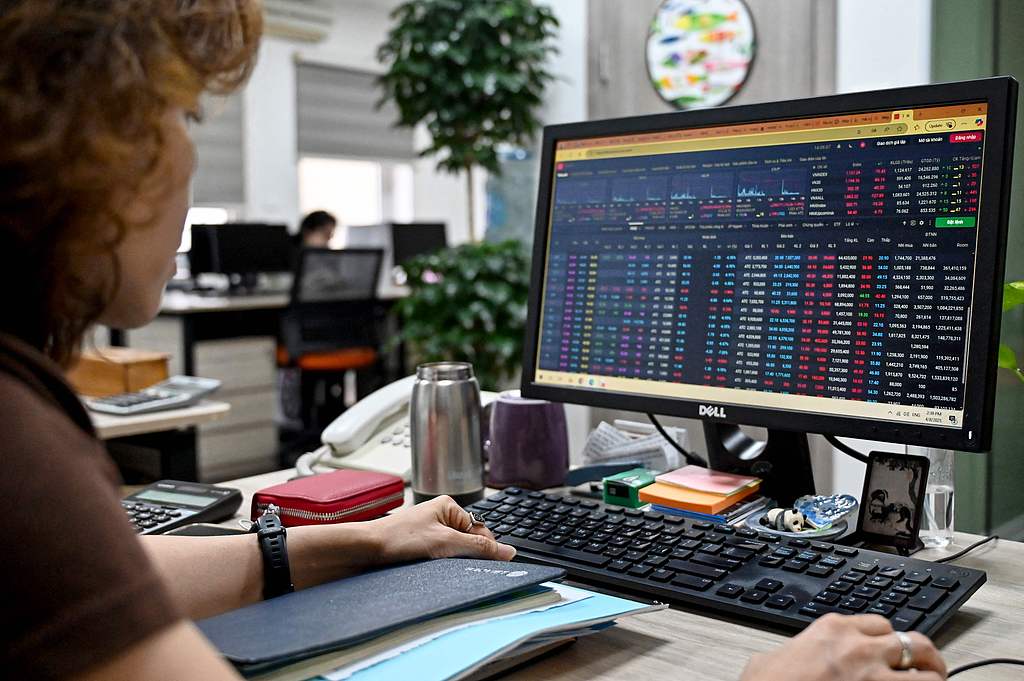
A woman looks at an electronic stockboard on her computer at a trading company in Hanoi, Vietnam on April 8, 2025. /CFP
The ghost of Smoot-Hawley
History has long given its verdict on tariffs. The 1930 Smoot-Hawley tariffs turned a recession into the Great Depression. The déjà vu is uncanny: U.S. steel tariffs briefly boosted producers but killed 75,000 downstream jobs. American icon motorcycle manufacturer Harley-Davidson was forced to shift production overseas to avoid costs. “Made in America” has become “priced out of America.”
Those in Washington are preaching “short-term pain for long-term gain.” Tell that to the 27 U.S. textile mills shut down in the past 20 months, or the single mom paying 17 percent more for Walmart clothes. Some on Reddit have put it quite well: “Tariffs are taxes on the poor.”
Epilogue: The unlearned lesson
The White House insists this is “historic” – and they’re right. Not since the 1930s has the U.S. so recklessly weaponized trade. But the world has changed: China is deeply integrated into global supply chains, the EU makes its own decisions, and ASEAN won’t ditch prosperity for geopolitics.
The clock is ticking. Every tariff tweet coming from Washington is shredding U.S. credibility. Every market plunge erodes the White House’s “strong economy” narrative. And America’s isolation deepens with every trade deal other countries make on lowered tariffs, such as those between China and ASEAN and European countries.
In the end, it’s not just about the economy. America is turning its back on the world. The path it has chosen is a solitary one.
(If you want to contribute and have specific expertise, please contact us at opinions@cgtn.com. Follow @thouse_opinions on X, formerly Twitter, to discover the latest commentaries in the CGTN Opinion Section.)
Дэлхий дахинд
БНСУ даяар галын нөхцөл байдал ноцтой түвшинд хүрснийг зарлалаа























































































